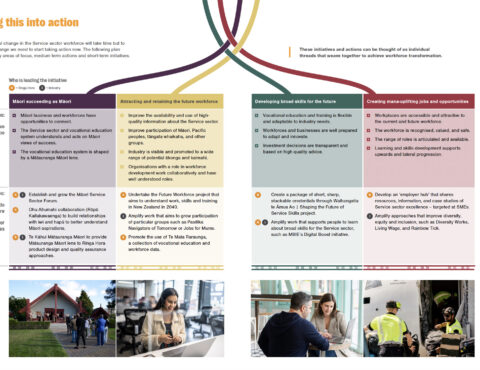The Service sector has a huge variety of roles ranging from highly skilled, highly paid roles to those that have traditionally been very low paid and seen as very low skilled.
As a result of COVID-19, it has become clear that many Service sector roles like cleaners and supermarket shelf stockers, who have previously been taken for granted, are critical to New Zealand on a day-to-day basis. There is a significant opportunity to maintain and build the mana of people in these roles, increase the pay they attract, and recognise the opportunities they offer.
This is especially important as the Service sector is often a gateway to employment for people who are new to the workforce or who may have been out of the workforce for some time. If we can equip people with a range of skills, including core skills and technology, businesses will be more adaptable while workers will have the tools to transition into other roles either in the Service sector or in the wider economy.
Building the mana of Service sector roles has benefits for businesses, whānau, and the community. For businesses, having staff engaged in more meaningful work is likely to lead to lower turnover and more highly productive staff. Building staff capability and skills helps build resilience and enables people to adapt more readily to changes, both to longer-term shifts and shocks like recent weather events and economic uncertainty. For whānau and communities, the benefits of having more highly paid and highly valued Service sector roles include the direct benefit of people having increased money to spend and wider impacts like increased esteem and aspirations for children and others connected to people in Service sector roles.

Transformational change in the Service sector workforce will take time but to achieve that change, we need to start taking action now. Download our action plan which includes the key areas of focus, medium-term actions and short-term initiatives.